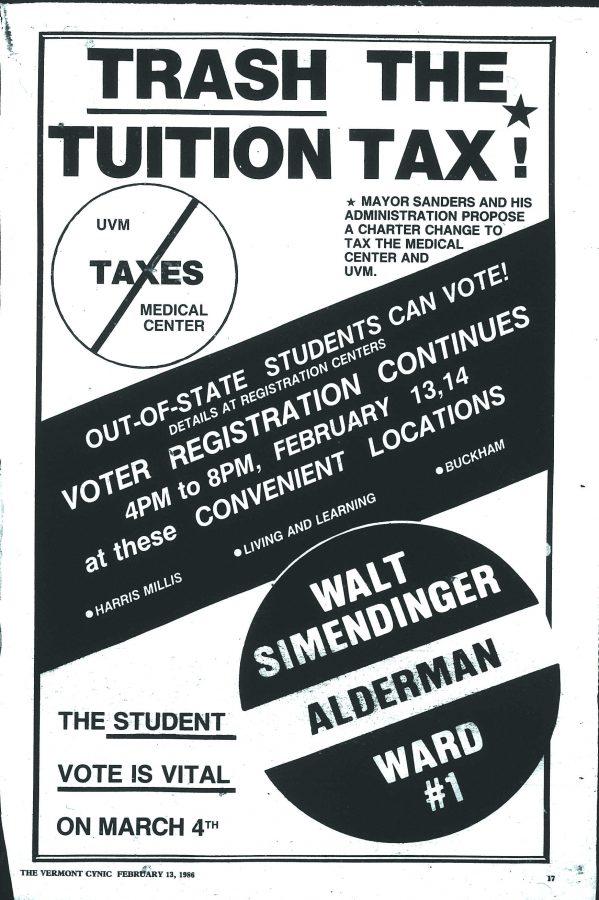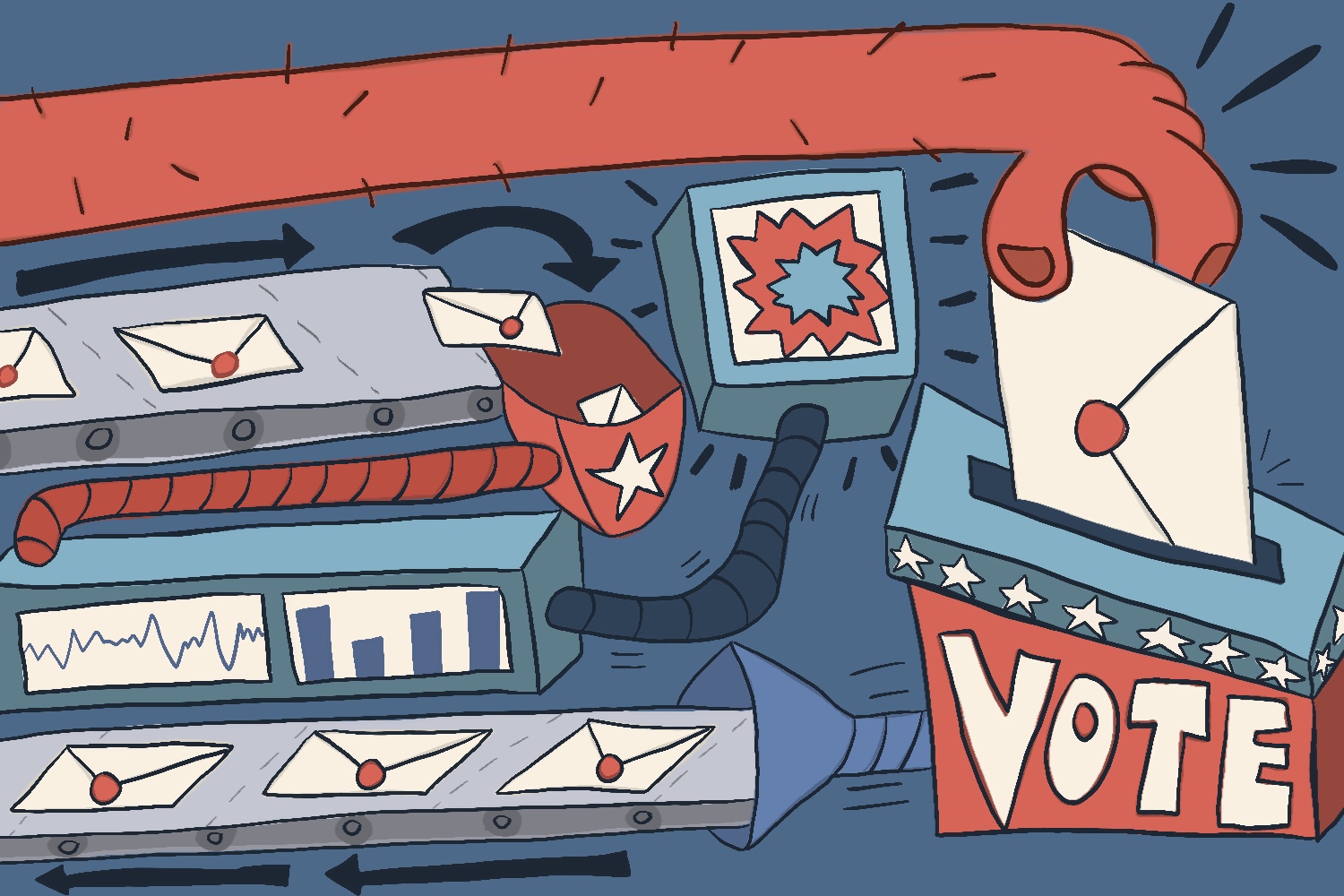“Well our mayor is at it again,” former UVM President Lattie Coor said.
UVM was, and still is, a non-profit, so it does not pay property taxes.
Sanders, mayor from 1981- 1988, did not think this was fair, because, between the Med- ical Center, the University and the city’s churches, nearly half of Burlington was a tax-exempt property, Coor said.
Coor, who was President from 1976 to 1989, was refer- ring to Bernie Sanders, the then-mayor of Burlington (1981-1988), and his plan to tax UVM. This would have in- creased tuition for all students, Coor said.
In the 1986 Burlington city election, the city voted in favor of charging UVM with a prop- erty tax, according to a March 1986 Cynic article.
The property tax proposal went to the state legislature where it was defeated in a nine- to-one vote by the Senate Municipal Elections and Corporations Committee, according to an April 1986 Cynic article.
The property tax proposal went to the state legislature where it was defeated in a nine- to-one vote by the Senate Municipal Elections and Corporations Committee, according to an April 1986 Cynic article.
So, in the end,the property tax for UVM did not go through. “I have told the mayor ever since he first raised this issue in his first campaign that … it would violate a public policy of tax-exempt status that applies to every state university in the nation,” Coor said in a Jan. 1986 op-ed.
Sanders, now famous for his stance on free college tuition, wanted to tax UVM because of all of the city services used by the University, which could’ve resulted in an increase of tuition costs.
“Should UVM pay property taxes to the city of Burlington? In my view, the answer is yes!” Sanders said in a Feb. 1986 op- ed.
Comparing Sanders’ current stance on free college tuition to his fight to tax UVM in the 1980s, Coor references an old political adage: “Where one stands depends on where one sits.” It means that a politician’s policies are dictated by the needs of their electorate, not their personal or partisan goals.
Coor said that Sanders had good reason to fight for the taxation of the University as the mayor of Burlington. The trends of the last few years have shown a decrease of state funding to public colleges and universities, he said.
“The burden of [that decrease] now takes place on students’ tuitions,” Coor said. “I share his view that the student loan burden that that has lead to is not in keeping with the kind of education that a society should provide.”
Back in Nov. 1982, Sanders’ explanation for why the University should pay taxes came from a place Sanders attacks even to- day as a presidential candidate: someone profiting unfairly from high medical costs.
In a letter sent that month to Coor, Sanders argued UVM had profited in the past off of the high cost of being a patient at UVM-affiliated Medical Center Hospital (now the University of Vermont Medical center), which he viewed as a public good, according to a Nov. 1982 Cynic article.
“A major user and beneficiary of city services and amenities does not directly contribute to this [monetary] support – despite the fact that the university is the owner of one of the most valuable pieces of property in the city,” he wrote, according to the article.
There appeared to be progress made on the issue in 1983, when the city council — then called the board of alderman — drafted up possible solutions to the issue, one involved raising the cost of college tuition.
In a Jan. 1983 Cynic article, Sanders said he did not care where the money came from, but that it was not his intention to make it more difficult for “young people” to get a college education.
The issue returned in 1986. In a Cynic op-ed released that year, Coor said that the mayor planned to tax the university a total of $1.9 million.
Coor said that he believed the mayor’s plan was not to tax the University for services received but to make it a source of revenue for the city.
In this op-ed, Coor said finding the funds to pay the city what the mayor wanted could raise the cost of tuition by $150 per student, but Sanders called this nonsense. He said he and Coor had been discussing for five years how UVM should pay for services rendered by the city and he felt they had made no progress.
The summer after the tax was defeated in state government however, Sanders entered into a battle with UVM over their request to build what would become Kalkin Hall, according to a Sept. 1986 Cynic article.
Coor said the controversy over the permit resulted in a year of delay on the building’s construction, but it made “substantial progress” on repairing the relationship between the city and the University, according to a Sept. 1986 interview with the Cynic.
On Sept. 9, 1986, Sanders signed the agreement for the expansion, with a couple of compromises, according to the article. One of these compromises was that UVM would pay $1,300 per call, in addition to a $50,000 annual fee to the fire department.
No fee per call is currently specified in the payment for services contract.
UVM paid $2.4 million in total fees and payments to the Burlington city government in 2014, according to the fiscal reports of that year.
“In my view, it was a worthy issue and one that ultimately I think we resolved fairly well, mostly in the sense that the University should not be getting things for free from the city and it ought to carry its own weight,” Coor said. “We certainly tried to do that and hopefully that is still the case.”













